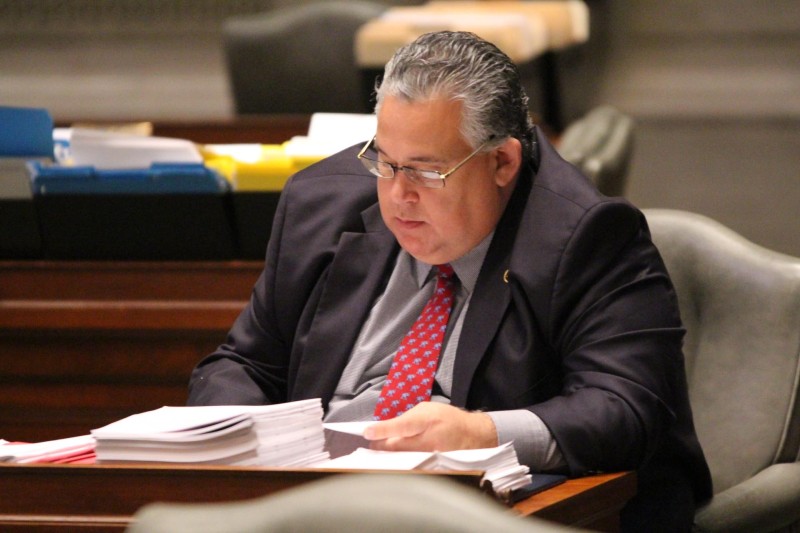JEFFERSON CITY, Mo. — Two bills that would further curtail just when the death penalty could be handed down were considered before a Senate committee this week.
Championed by Republican state Sen. Paul Wieland, SB 288 would remove the option of the death penalty if all jurors cannot unanimously agree to such a punishment. Wieland told the Senate Judiciary and Civil and Criminal Jurisprudence Committee courts can currently decide on a penalty for someone found guilty of first-degree murder except in instances when the governor intervenes or in death penalty cases.

“We believe this raises serious constitutional questions about our death penalty currently,” a representative from the Missouri State Public Defender System told the committee, adding the office would have more resources for other cases should this bill pass.
Tim Lohmar, president of the Missouri Association of Prosecuting Attorneys, spoke in opposition to SB 288, noting it could take just one juror to decide whether someone would receive the death penalty.
One person who didn’t approve of the death penalty could “derail” the option of that punishment in some of the most vile cases, Lohmar argued.
The other legislation brought before the committee this week was SB 462 from state Sen. Lauren Arthur, a Democrat. Her legislation would eliminate the option of the death penalty for convicted felons who are found to have been suffering from a serious mental illness at the time of the crime. That person would still be able to receive life in prison without parole, however.

A defense would need to provide evidence that an individual was indeed suffering from an “established serious mental illness” at the time of the crime, and the prosecution would be allowed to present evidence pointing to the contrary.
The mental illnesses laid out in the bill are: schizophrenia, schizoaffective disorder, bipolar disorder with psychotic features, a major depressive disorder with psychotic features, delusional disorders, traumatic brain injury, or post-traumatic stress disorder.
“The two main reasons the U.S. Supreme Court decided as justification for the death penalty — retribution and deterrence — don’t apply to [people with] serious mental illness when they’re too delusional to understand what they’ve done,” Arthur said. “This bill elevates our highest ideal to pursue justice in a fair and equitable manner.”
Lohmar also opposed this bill, saying it would “eliminate any evidence of a person’s mental illness or lack thereof from a jury” and only be before a judge.
“The fact remains that all the evidence about a defendant’s mental illness is available and will be and must be presented to the jury under the present law,” he said.
There is similar legislation to SB 288 in the House — HB 811 — which was voted out of committee last week.

Kaitlyn Schallhorn was the editor in chief of The Missouri Times from 2020-2022. She joined the newspaper in early 2019 after working as a reporter for Fox News in New York City.
Throughout her career, Kaitlyn has covered political campaigns across the U.S., including the 2016 presidential election, and humanitarian aid efforts in Africa and the Middle East.
She is a native of Missouri who studied journalism at Winthrop University in South Carolina. She is also an alumna of the National Journalism Center in Washington, D.C.
Contact Kaitlyn at kaitlyn@themissouritimes.com.














